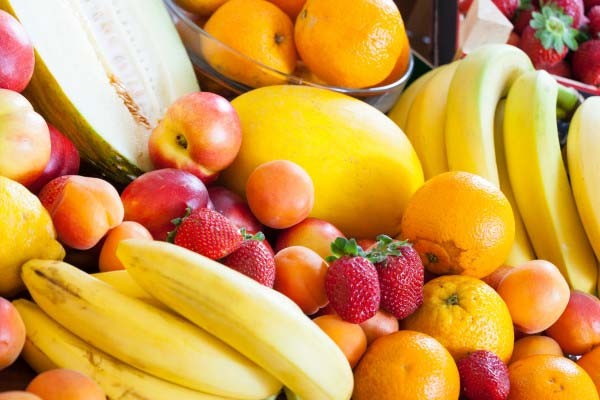Fructose: A Not-So-Sweet Story?

Fructose intake in the modern diet
How much do we know about fructose? For most, their understanding spans about as far as “it’s the sugar in fruit.”
While our ancestors consumed a high fruit intake, serving as both a signal for sweetness and good nutrition, the quantity of fructose intake was small in comparison to today’s intake. Now that doesn’t sound right, does it? As observational research has shown that fruit intake has decreased over the years, in the progression of what some would consider an obesogenic eating society. Why then is fructose intake increasing?
You might be surprised to know that fructose in our diet actually derives from 3 main sources:
- Sucrose (i.e. table sugar)
- High-fructose corn syrup (HFCS) made from corn starch
- Fruit
In fact, in today’s society, the largest source of our fructose intake is from sugar-sweetened beverages like Coke and Fanta (30%), followed by grains (22%) and then with the smallest part of our fructose intake coming from actual fruit (19%).
Although some evidence indicates that the consumption of fructose is associated with body weight gain - and even toxic - do we need to worry about how much fruit we are eating? Or are we not interpreting the research correctly?

What the research says about fructose
The link between fructose intake and the global obesity epidemic has been discussed at great length in recent years. For some, the research supporting this association would be deemed compelling and has led many to initiate steps at reducing fructose in the diet. However, this association and the subsequent interpretations need to be taken with caution. Firstly, in intervention studies, adverse metabolic effects have been seen only after huge isolated fructose intakes in human and animal subjects. The problem here is that in practice, fructose is ordinarily ingested together with glucose, not pure fructose.
Secondly, food disappearance data (the food available for human use) suggests that fructose intake has only increased as a result of added sugars in commercial foods and beverages over the past decades, which has risen in parallel with obesity rates. The use of food disappearance data also does not accurately reflect food consumption, and thus shouldn’t be used as evidence of a causal link between fructose intake and obesity.

Is fructose linked to obesity? The argument continues
Both of these lines of evidence are clearly insufficient to establish a causal role of fructose in metabolic diseases and obesity. Despite this, fructose is still considered by some well-renowned authors to be a major culprit for obesity and related disorders based on three categories of arguments:
- Arguments that generalise data derived from animal models of obesity (in which sugar overfeeding was used as an experimental tool to increase body weight) as well as human studies in which excessive fructose intakes were used to study the mechanisms of metabolic dysregulation.
- Arguments that confuse the relative contents of glucose and fructose in industrially produced food and beverages.
- Arguments that underestimate our personal responsibility to remain physically active and to consume a healthy diet.
How to properly interpret the data on fructose intake
I have more evidence that refutes the claims made by these authors. Firstly, the correlation between high fructose corn syrup (HFCS) and obesity only happened in North America. In Europe, there was also an increase in obesity rates during the same period, but HFCS was not consumed to any significant amount. So, the fructose content in HFCS can’t possibly be to blame.
Secondly, it is perceived that HFCS has a very high fructose content. In fact, the relative proportion of fructose to glucose in HFCS is not that different from standard table sugar, with HFCS being 55% fructose, and table sugar is 50% fructose.
Additionally, in association studies, the correlation between obesity risk and fructose intake from beverages was only found when researchers didn’t adjust for total caloric intake. If total energy intake is accounted for, remodelling analyses indicate that consumption is not in fact associated with obesity risk.
A meta-analysis, a time-series study, and a cohort study all reported an association between fructose and sugar-sweetened beverage intake and diabetes, dyslipidaemia and cardiometabolic risk factors. However, AGAIN, this relationship was only observed when researchers didn’t adjust for body weight. Once this adjustment was made the relationship disappeared, which tells us that obesity itself rather than the intake of sugars may be the factor associated with the markers of metabolic diseases.
It is also generally believed that the consumption of fructose leads to an increase in lipid synthesis in the liver and a subsequent increase in circulating triglyceride levels, compounding the belief that fructose intake is involved with obesity manifestation. However, well-controlled studies in human subjects, using stable isotopes, do not confirm this relationship.

The key takeaways on fructose
Based on the currently available data, any statement that ordinary fructose intake is toxic, and that consumption of fructose is the leading cause of the global obesity epidemic is unjustified. Do we need to limit our fruit intake? Absolutely not.
Any research suggesting negative health and body composition effects from fructose intake is most likely due to the overall rise in energy intake, and added sugars to commercial food and drink products.
Like I said earlier, fruit is actually the smallest component of fructose intake in today’s society and is the least likely contributor to the fructose-obesity relationships observed. If anything, as a society we should focus on reducing our intake of commercial sugar, which accounts for the greatest proportion of our fructose intake, and provides no additional nutrients (fibre, vitamins, minerals) that fruit provide.
Don’t worry about your fructose intake, worrying about energy consumption is far more important in terms of managing obesity.

Jackson Peos has completed a PhD at the University of Western Australia, and has a straightforward approach to nutrition and supplements.
He's completed his BSc in Sports Science, and Exercise & Health, and his BSc (Hons) in Exercise Physiology.
More about Jackson PeosReferences:
- Bray GA. Fructose--how worried should we be?. Medscape J Med. 2008;10(7):159. Published 2008 Jul 9.
- Forshee RA, Anderson PA, Storey ML. Sugar-sweetened beverages and body mass index in children and adolescents: a meta-analysis [published correction appears in Am J Clin Nutr. 2009 Jan;89(1):441-2]. Am J Clin Nutr. 2008;87(6):1662-1671. doi:10.1093/ajcn/87.6.1662
- van Buul VJ, Tappy L, Brouns FJ. Misconceptions about fructose-containing sugars and their role in the obesity epidemic. Nutr Res Rev. 2014;27(1):119-130. doi:10.1017/S0954422414000067




























